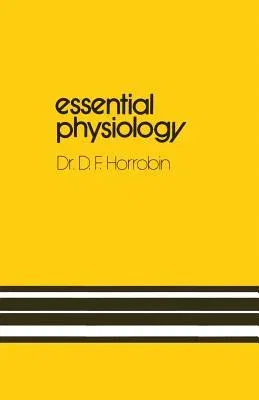D F Horrobin
(Author)Essential Physiology (Softcover Reprint of the Original 1st 1973)Paperback - Softcover Reprint of the Original 1st 1973, 30 April 1973

Qty
1
Turbo
Ships in 2 - 3 days
In Stock
Free Delivery
Cash on Delivery
15 Days
Free Returns
Secure Checkout
Part of Series
Essential Knowledge
Print Length
220 pages
Language
English
Publisher
Springer
Date Published
30 Apr 1973
ISBN-10
0852000510
ISBN-13
9780852000519
Popular Books
Ships in
Description
Product Details
Author:
Book Edition:
Softcover Reprint of the Original 1st 1973
Book Format:
Paperback
Country of Origin:
US
Date Published:
30 April 1973
Dimensions:
21.59 x
13.97 x
1.24 cm
ISBN-10:
0852000510
ISBN-13:
9780852000519
Language:
English
Location:
Dordrecht
Pages:
220
Publisher:
Series:
Weight:
272.16 gm













